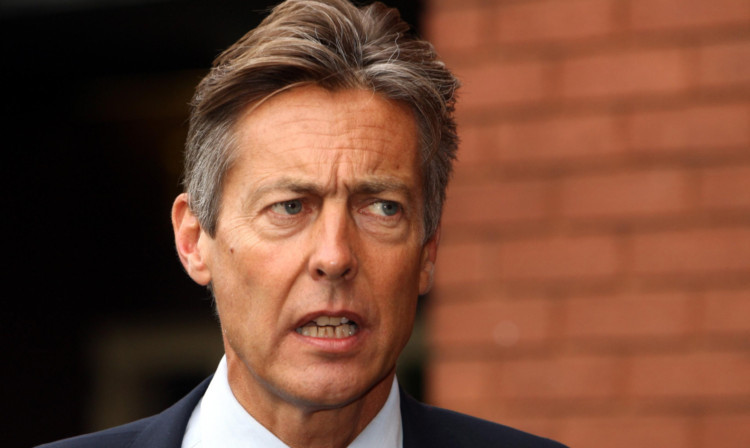
The first week of the autumn term at Westminster will be dominated by issues of freedom of the press.
Not only are MPs considering the lobbying bill that critics claim will gag charities and voluntary groups at election time but Lord Leveson, the architect of plans for press regulation, appears not once but twice in front of select committees.
And, by a quirk of the calendar, the Privy Council will also meet to consider the options before them when it comes to endorsing a Royal Charter for the media.
The backdrop to all this is a bitter spat between Labour leader Ed Miliband and The Daily Mail over their treatment of his family, the paper having trashed his dad’s reputation and gatecrashed a family memorial service. The atmosphere is acrid, as evidenced by what Ben Bradshaw, Culture Secretary in the last Labour government, says about his Conservative colleagues on the culture, media and sport (CMS) select committee.
Leveson is before the committee on Thursday.
Bradshaw, also an ex-journalist, said: “The Conservative members of the committee are from the Tory Taliban tendency. They are not representative of backbenchers as a whole, who overwhelmingly backed parliament’s plans for a Royal Charter.
“They will try to trip up Lord Leveson and divert him, but he’s an experienced judge.”
Lord Leveson is also due to be quizzed by a committee of peers the previous day on the entire inquiry system and its effectiveness.
That lends weight to conspiracy theories that there is a concerted effort to discredit Leveson and, by association, the report he published nearly a year ago calling for a new regime of press regulation. A report lacking in understanding of how the press works despite months of evidence sessions.
Added Bradshaw: “Lord Leveson spent 18 months looking into this and I think his report should be allowed to stand on its own.”
The timing of Leveson’s appearance before the CMS committee could prove important. It follows a meeting of the Privy Council to consider a Royal Charter put forward by the media as an alternative to the one drawn up or stitched up according to critics by MPs and overwhelmingly endorsed by parliament.
Certainly the state’s preferred option had an odd genesis it was drawn up in the Labour leader’s office in the wee small hours by Harriet Harman, Cabinet Office ‘superbrain’ Oliver Letwin and representatives of the Hacked Off campaign group.
Despite that, it’s expected that the Privy Council a weird constitutional anomaly that is entirely undemocratic will dismiss the charter put together by the newspapers who will have to abide by it.
Parliament’s charter is more independent of the press, but less independent of politicians.
Bradshaw added: “All three party leaders have made it clear that the press charter is not Leveson compliant. The only way the parliamentary charter will not be taken up is if David Cameron completely loses his nerve.”
Bradshaw’s view on the Miliband versus Mail clash that hogged headlines throughout the Conservative conference last week and that timing may also not be entirely coincidental on either side does raise questions about whether politicians are best placed to decide the fate of the press.
He said: “It’s the last thrashing of a discredited and outdated tabloid regime. The coverage has been vile. Ed Miliband was right to defend his father and the constituents I’ve spoken to agree with me on that. He has done himself credit and shown again that he will stand up to unaccountable, vested interests and cowards.”
Miliband may not have picked a fight with sections of the press but there’s no doubt he’s relishing it as it undermines one of the repeated criticisms against him that he is weak.
Bradshaw insists he would never endorse a regulatory regime that muzzled the press and, even should parliament’s Royal Charter come into force, it would not stop newspapers writing articles like the one that dubbed Ed Miliband’s father “The Man Who Hated Britain”.
Some say, though, that the proposals would mean titles having to apologise for their opinions.
Bradshaw claims the newspapers are not the most important people in the process. He said: “We must respect the views of people like the Dowler family and the McCanns, who had their lives destroyed by certain newspapers, and keep them in the forefront of our minds.”

Enjoy the convenience of having The Sunday Post delivered as a digital ePaper straight to your smartphone, tablet or computer.
Subscribe for only £5.49 a month and enjoy all the benefits of the printed paper as a digital replica.
Subscribe